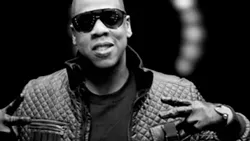Saturday, December 12, 2015
What Jay-Z's "99 Problems" got right (and wrong) about the 4th Amendment
Caleb Mason, a trial lawyer in Los Angeles, took Jay-Z to task on his 4th Amendment expertise when the lawyer wrote a line-by-line analysis of the Best Rapper Alive's song "99 Problems." Mason lays out how accurate the song is when it comes to our rights against unlawful searches and seizures. Given recent reports about asset seizure in Spokane, it seems some local drug dealers could have benefitted from listening to The Black Album.
Mason wrote the piece as a reference for law students in 2012 (he used to teach at Southwestern Law School in LA), and since it first appeared in the Saint Louis University Law Journal, he's received praise from prosecutors, defense attorneys, reporters, the ACLU and the FBI on its usefulness in understanding what cops can and can't do when they pull you over.
"I think it's had the effect that I'd hoped," Mason says. "Everybody's heard the song, and it's a good teaching tool."
Mason's article is certainly useful, but the juiciest parts, he says, are in the footnotes where he lists all the cases that support his explanations. By including those, he's provided a comprehensive anthology of 4th Amendment case law that will make you go "they can really do that?"
JayZ 99 Problems from Joaquin Baca-Asay on Vimeo.
A condensed version of his article is below. To read the whole thing, click here.
— Line One: "The year is '94 and in my trunk is raw." According to Jay-Z's autobiography, Decoded, the entire song is based on something that really happened to him in 1994 when he was slinging crack in New York City. As a matter of law, Mason points out, vehicles are much easier to search than houses.
See South Dakota vs. Opperman and California vs. Carney.
— Lines Two and Three: "In my rearview mirror is the muthaf—ing law, I got two choices ya'll, pull over the car or..." Here, Young Hov lays out his options: run from the cops or pull over and hope they don't find the drugs. Mason's advice? Pull over.
"If you think the stop wasn't legit, meaning not based on any verifiable traffic violation, you can fight it," he says. "But if you run, you give them the basis for chasing and searching you."
In his article he adds that some jurisdictions have a "no-chase" policy, but even then it's best to pull over, he says.
— Line Five: "Now I ain't trying to see no highway chase with Jake." Mason applauds Jiggaman's decision here. If you decide to run, it will almost certainly end badly for you. The U.S. Supreme Court has upheld the use of deadly force to end high speed chases. ("Jake" is the cops, by the way.)
See Scott vs. Harris.
— Line Six: "Plus I got a few dollars I can fight the case." Mason says that Iceberg Slim's decision is bolstered by the fact that he knows he can afford a good attorney to fight any charges, rather than rely on an "overworked public defender." Good for you, Jigga. Not everyone is so lucky.
— Line Seven: "So I pull over to the side of the road" This is the point where Jay-Z can now make claims relative to the 4th Amendment. As soon as you're pulled over, you've been "seized" and the rules of the 4th Amendment apply.
"If you are stopped illegally and want to fight it later," Mason writes, "you have to submit to the show of authority. In this case, if the police find contraband, he'll be able to challenge it in court. Smart decision here by Jay-Z."
— Line Eight: "And I heard, 'Son do you know what I'm stopping you for?'" Mason suggests recording the entire interaction so you have a record of the officer's explanation for stopping you.
Hint: when he or she asks if you know why you've been pulled over, Don't give them a reason.
"The best advice is to ask 'why did you stop me?'" Mason says.
— Lines Nine and 10: "Cause I'm young and I'm black and my hat's real low? Do I look like a mind reader, sir? I don't know." Mason notes that at the time the song takes place (1994), the New Jersey State Police ran an active "drug courier profiling" program. Stops based completely on a person's appearance (young, black, hat real low), are "questionable," but they can certainly inform an officer's decision to pull over, say, a young black speeder rather than a young white speeder.
And the Supreme Court agrees: see Whren vs. United States.
— Line 11: "Am I under arrest or should I guess some mo'?" Great question. Technically, officers can arrest you for speeding (or other traffic violations). And if that happens, they'll impound the car and search it to inventory its contents.
See Atwater vs. City of Lago Vista, which says you can be arrested even for crimes that would not get you jail time.
— Line 12: "Well you was doing 55 in a 54" That's a legit stop. You can be pulled over for even the most minor of offenses.
— Lines 13-15: "License and registration and step out of the car. Are you carrying a weapon on you, I know a lot of you are." "I aint' steppin' out of shit, all my papers legit." Couple things here: The Supreme Court has said once a car has been lawfully stopped, the officer has every right to order that person our of the car without violating the 4th Amendment.
See Pennsylvania vs. Mimms.
As far as that weapon? The Supreme Court also allows officers to do a "weapons pat down," if they have "reasonable suspicion" to believe the person might be armed.
See Terry vs. Ohio.
Furthermore, another case expanded on Terry, by allowing vehicle frisks for "readily available weapons."
See Michigan vs. Long
— Line 16: "Do you mind if I look around the car a little bit?" "Don't ever consent to a search," Mason says. As soon as you give an officer, permission, all bets are off. And no fair saying you didn't know you could refuse. It's your responsibility to know your rights when it comes to unreasonable searches.
See Schneckloth vs. Bustamonte.
— Lines 17-22: "Well, my glove compartment is locked, so is the truck and the back, And I know my rights, so you go'n need a warrant for that." "Well aren't you sharp as a tack, some type of lawyer or something or somebody important or something?" "Nah I ain't pass the bar, but I know a little bit. Enough that you won't illegally search my shit."
Here's where Young Hov got it wrong. A locked trunk does not and will not stop the police from searching it. As long as officers develop probable cause to search the car, they can and will search the whole thing, locked compartments and all.
See California vs. Acevedo.
— Line 23: "We'll see how smart you are when the K-9s come" A dog sniff is not a "search" under the law. The question is whether or not the dog was there when the officer pulled you over. If it was, a sniff is allowable, and if the dog barks, there's your probable cause. But, Mason points out, the police cannot detain you for longer than it takes to completely investigate.
See Illinois vs. Caballes.
— Line 24: "I got 99 problems but a bitch ain't one" In his autobiography, Jay-Z notes that "bitch" references a female K-9, who never came to sniff the car, not a woman.
In short, Mason's advice: "Don't blurt things out, and the no. 1 thing is do not consent to being searched."
Tags: Jay-Z , Caleb Mason , 4th Amendment , For Fun! , Image , Video













